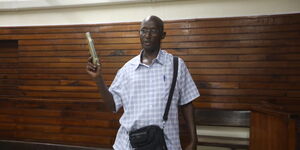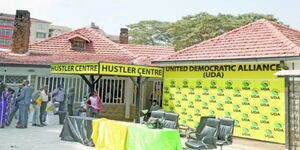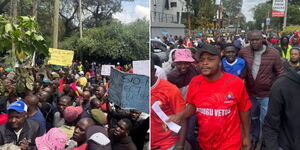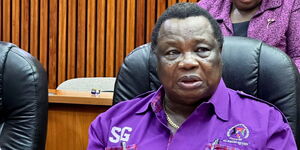Political aspirants have been dealt a blow after the High Court ruled that campaigns conducted outside the election period are a violation of the law.
Amid rising political tensions across the divide, the High Court suspended early campaigns, ruling that the practice undermines the right to free and fair elections.
In the landmark ruling, Justice Hedwig Ong'udi also ordered Attorney General Dorcas Oduor to come up with clear laws on political campaigns within 12 months.
"A declaration is hereby made that carrying out of political campaigns outside the election period violates the right of equality and equal protection of the law, the right to life freedom from unrest, principal of impartiality, right to development, principal of rule of law and free and fair elections," the ruling read.
The court ruling came following a petition by a non-governmental organisation focused on protecting and promoting the rights of vulnerable and marginalised individuals and communities in Kenya.
In the petition, it was argued that there were worrying legal gaps facilitating early campaigns. They also sought clarification on whether there was a statute regulating campaign periods.
The ruling came against the backdrop of rising tensions among political leaders allied to President William Ruto's Kenya Kwanza regime and the new-look opposition spearheaded by former Deputy President Rigathi Gachagua.
In recent months, the two factions have been embroiled in an intense battle to establish dominance and further their respective agendas, particularly in regions where the vote could go either way in the 2027 general elections.
Notably, instances of rallies whenever a renowned political leader is on the ground have been rampant, with the agenda mainly revolving around slamming the opposition.
The latest High Court ruling is set to spark a chain of events, with the Attorney General having less than a year to comply with the directive. AG Oduor will first have to analyse the judgment to understand its legal implications and the specific constitutional gaps identified by the court.
Stakeholder engagement will follow, with the AG expected to consult key stakeholders, including Parliament, political parties, civil society groups, and electoral reform experts.
The AG will then draft a policy paper outlining the rationale and objectives of the new law, with the paper set to guide the next stage, which is the actual drafting of the bill.
These engagements will then guide the AG in drafting a policy paper outlining the scope of the new law. Also, this policy paper will guide the next stage, which is the actual drafting of the bill.

KNEC Releases 2025 KJSEA Results, How to Check Breaking News











